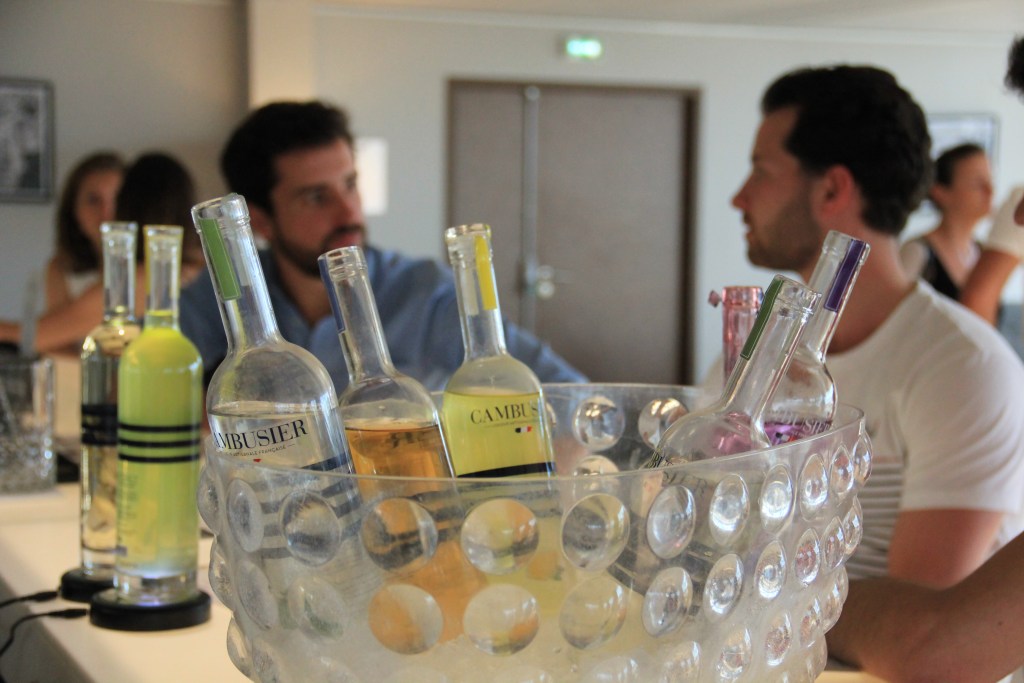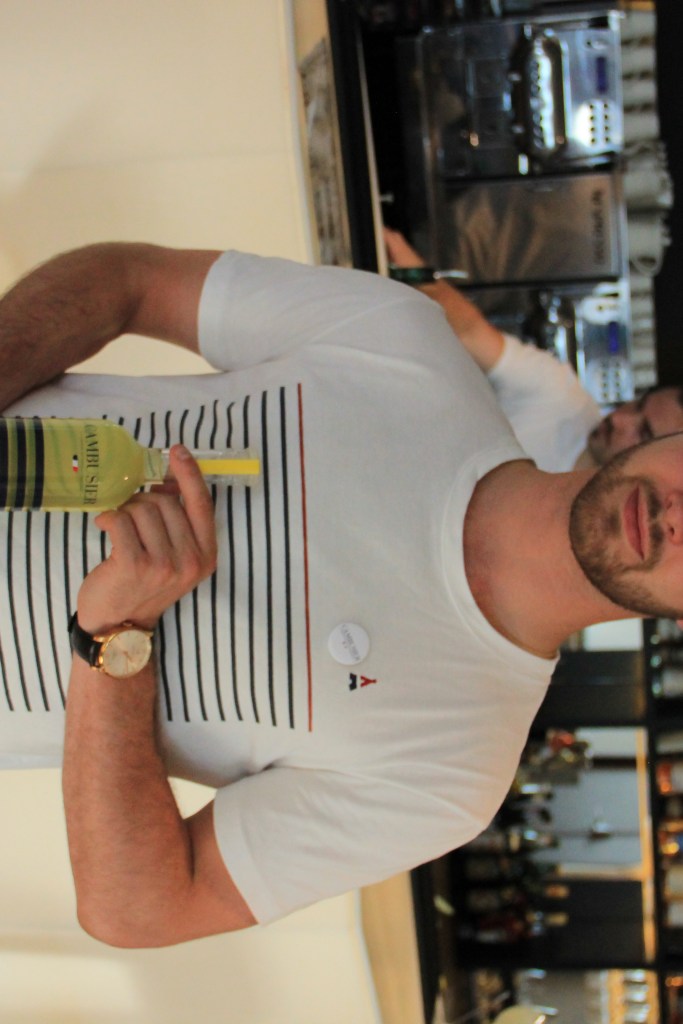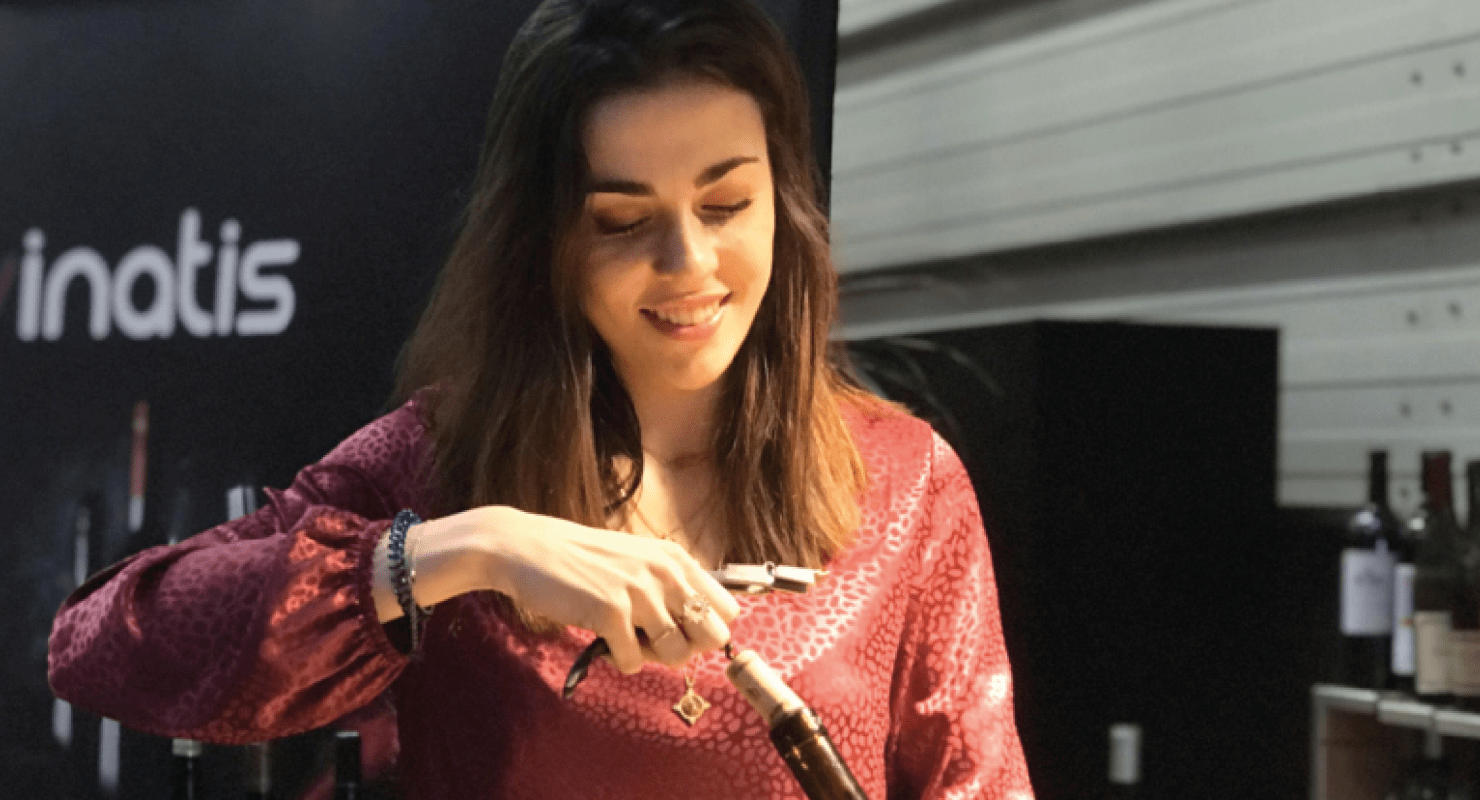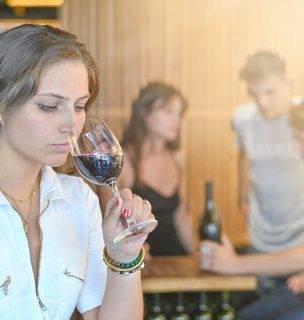The MSc Spirits Marketing and Management: an expert training in the spirits sector
The INSEEC MSc program in Marketing and Management of Spirits is designed for students who wish to develop their theoretical and practical skills in the spirits sector.
France is the most renowned country in the world for the production of high quality eaux-de-vie. Bordeaux, in particular, has always been an important place in the world for the marketing of wines and spirits, due to its location between two key areas: Gascony, one of the oldest spirit regions in France with more than 700 years of experience in the production of Armagnac, and on the other hand, Cognac, world famous for its spirit of the same name, without forgetting its dynamic production of top-of-the-range spirits such as vodkas, gins or even vermouth. The latter area is now called Spirit Valley.
Moreover, France is the world leader in the luxury sector with groups such as LVMH, Kering, Chanel, Hermès… for this reason, France is a world leader in design agencies and creative and innovative suppliers.
INSEEC is committed to attracting the best professionals and teachers in the spirits industry. This course was created to give students the opportunity to enter this dynamic sector by giving them a wide range of practical, theoretical and multicultural knowledge.
Jean Noel Dollet, Director of the Master os science in Marketing and Management of Spirits

A diploma course in 1 or 2 years for a specialisation in the field of spirits
Holders of a BAC+3 can apply for the1styear MSc, and holders of a BAC+4 can apply directly for the 2nd year MSc.
This program is available on the Bordeaux campus in 100% English.
The MSc Marketing & Management of Spirits is open to students from universities and business schools as well as professionals in the wine and spirits sector. It is accessible after a two-year BAC+3 or a one-year BAC+4.
This program is strongly oriented towards the international scene. It provides real managerial expertise in the field of spirits through courses in strategy, mergers and acquisitions, international market development, consumer behaviour, media and PR… in order to meet the needs of companies in the sector.
A variety of courses and individual and group projects will also enable students to improve their English skills.
The spirits industry has changed dramatically over the past decade, both in size and in sophistication. Brands are still bound to grow, whether they are large or small. More than ever, they need international experts with a good knowledge of the different categories of spirits and the dynamics that contribute to their rapid development.
Would you like to know more about the Marketing and Management of Spirits program?
Sign up for an Open House!
The Courses
The courses listed below are examples only and may vary slightly depending on the campus. The content of the courses is adapted each year to market developments and is updated before the start of each new school year.
1st year courses
WORKSHOPS 1ST YEAR
Business Game
The business game is played using a business simulator. Groups of students are responsible for running a business in real time. All major business functions are covered. Students will make decisions to maximize the profitability of the business.
Professional Technical Workshops and Personal Management
- CV writing, recruitment interview techniques for the search for an internship, professional project management, team management and meeting management.
- Negotiation techniques, transactional analysis and NLP, speaking and stage fright management, management and leadership techniques (PRADITUS).
- Skills assessment, coaching, digitization of the CV and job search techniques at national and international level, preparation for the defence of the applied research thesis.
Business skills
What makes a successful business person?
Internal and external communication skill; managing your priorities and deadlines; organization and time management skills; how to be a great listener, writer and speaker; effective sales techniques; effective group dynamics and project management skills; understanding international business culture.
Trade conferences
Presentation of the professions in the sector by professionals.
CROSS-CUTTING AND FUNDAMENTAL COURSES
Budget management and management charts
The objective is to acquire key skills in terms of budget management and reporting. The focus will be on budget architecture, with the implementation of summary documents, project management control and its link with budget management, and the creation and steering of performance indicators.
Business plan and setting up a company
The objective of this module is to learn how to draw up a business plan: Designing a costed project for the creation or development of a company.
Several steps are covered: feasibility study, market targeting, opportunities and risks, strengths and weaknesses, communication, financing plan and profitability.
Corporate strategy
A precise methodology for analyzing customer needs, market structure and competitor dynamics to identify opportunities and threats in the environment is presented.
Negociation
This seminar focuses on a negotiation in a national and international context.
In particular, it will be necessary to take into account the cultural dimension and define its impact in an international negotiation. The national negotiation will focus on the sales process through role playing.
Business english / toeic
To perfect English language comprehension and communication skills in a wider context than just business English. Students are required to take the TOEIC test.
Management Information Systems
This module aims to deepen students’ skills in IT to meet the needs of companies in terms of budgetary or commercial monitoring, project management, personnel management and communication: Excel, Word, Powerpoint, teamwork tools, business software.
It aims to be efficient with office automation tools, identify and correct errors quickly, customize existing tools or create your own tools.
SPECIALIZED COURSES
Legal aspects of the wine and spirits sector
Presentation of the wine-growing structures, the different types of companies (form, purpose, interest) and the specificity of rural leases. Basic principles of the protection of wine and spirits trademarks (including toponymic trademarks). Analysis of the rules applicable to customs and excise. Detailed presentation of a wine property transaction.
International marketing
This course gives on in-depth presentation of the main wine and spirit businesses around the world. Global approach of wine and spirits world markets, knowledge of wine and spirits environment. Approach of consumer’s pattern analysis. Integration of the specificities of wines and spirits in marketing strategies. Strategic marketing tools and wines strategies. Presentation of updated forecasts on the wines and spirits world markets.
International trade of wines and spirits
Presentation of the main markets of wines and spirits in the world (UK, US, germany, benelux, italy, spain, asia). Incoterms and means of payment, financing of export contracts. Define the conditions of the internationalization of companies in the wine and spirits sector. Understand the financial needs of international trade operations.
Key players in the wine and spirits sector
Within the framework of this seminar, professionals from the wine industry will participate in workshops (merchants, brokers, owners, oenologists). They will decipher the respective challenges of their businesses as well as the expectations of the market. Practical cases will illustrate the problems of the sector. This work will be the subject of recommendations that will be presented to the managers of the sector.
International purchasing and logistics of the wine and spirits sectors
The tool specific to the purchasing strategy. Obtaining the best conditions of quality and cost for dry materials (corks, bottles, labels, plastics, wood). Set up a logistics circuit. Manage financial risks, including currency risk. Study of documentary credits and financial guarantees. Timely delivery of wine and spirits, including costs and security.
Wine and spirits distribution network
Analysis of the main markets of the western european union, the USA and asia. Trends and forecasts (IWSR). Focus on specific markets. The key participants of the distribution: wine merchants, mass distribution, hospitality/restaurants. Specificities of the distribution of bordeaux grands crus classés.
Development of a pricing strategy based on the distribution network. Characteristics of the sales of wines and spirits as well as issues of e-commerce.
2nd year courses
WORKSHOPS 2ND YEAR
Personal development workshops and seminars
Practical seminars aimed at facilitating the integration of the student into professional life:
– Company visits; information technology and the multimedia (excel, power-point applications); performance building and individual coaching (practical exercises): preparing a professional “résumé”.
– Recruitment methods; public speaking; negotiation techniques; conferences on current topics and issues.
CSR Certification
Professional workshops
These workshops will be carried out in collaboration with
Our partners (wine merchants, growers, wine associations, appellation associations).
Business conferences
Presentation of the professions in the sector by professionals.
Production, techniques and tastings
Production – techniques and tastings
This course prepares students to history of distillation and alcoholic beverages; A brief history of the main categories: whisky, brandy, vodka, rum, soju; raw materials: water, corn, grapes, wheat, rice, potatoes; origins, usage versatility; distillation: column vs. Pot stills, distillation basics; and, filtration, blending, ageing bottling, and shipping.
Spirits tastings
Students will practice in tastings of the main categories (white spirits, brown spirits, liqueurs and specialties);
Courses on the versatility of spirits (straight, mixed, food pairing); and, visit whisky distilleries, cognac companies and vodka producing units.
Spirit tastings et cocktail making-off
Spirit and cocktail masterclasses with spirit specialists and world class bartenders.
Communication
Media press relations and communication
Defining the various roles played by the key players in sources of information and media press.
How to communicate efficiently.
International advertising and event management
Topics include: sources of information and key players in international advertising (advertisers, agencies, media, consumer lobbies);
Global trends affecting advertising today and tomorrow (political, economic, technological, socio-cultural, etc.); And,
Socio-cultural and management factors that have to be taken into consideration when researching, planning and implementing international advertising campaigns.
Management
Management in the spirit industry
Topics include: integrating a strategic approach to long term development, formulating a global company diagnostic and assessing capacity for change in a fast moving environment;
Making a global diagnosis of a firm and its environment while taking into consideration its capacity to adapt to changes;
Analyzing and understanding structural problems linked to establishing a strategic plan; and, pinpointing the identity of an organization and analyzing the components of the company culture.
Finance and economy in the spirit industry
Choices regarding investment and financial means;
Financial analysis and financial information – to know theusers, the sources of information; mastering the tools of financial analysis; financing the assets, the production tools and the marketing development; and, COGS, overheads and marketing – aiming at optimizing the gross and the net margins
Law, regulations and policies
This course introduces legislation inside and outside of europe, rules governing the sale and presentation of products; the naming of wines; the brand, its labelling and its promotion; administrative constraints; product licensing, contracts and control of brand image; protection of intellectual property; combating counterfeit and parallel imports; international regulatory and tax environment; and, communication compliance.
Supply chain management in the spirits field
From independent agents to fully owned stores, how to control distribution and maximize distribution margins. Topics include: logistics and e-business;
Distribution and logistics strategy; customs and wine transport; specifics linked to purchasing in the wine business; and, the role of spirits merchants.
International negotiation
The purpose of this course is to master different negotiating techniques according to the cultural context and learn to negotiate with a win-win approach. The course introduces students to the different negotiation techniques with an eye to the cultural context (europe, USA, north africa, asia and latin america). Participants learn how to use a win/win approach and appreciate the importance of gaining a sound knowledge of the profile of buyers. The course also stresses the importance of learning and analyzing the key points needed to succeed in negotiation.
Marketing
Consumer behavior
This course investigates the dynamics of human behavior and how it relates to decision-making. It helps gain understanding of consumer trends in order to better define target markets. It will explore attitudes: from sipping alone to social drinking, from medical benefits to adverse effects, from taste enjoyment to purposeful drinking. The bright and the dark sides of the spirits industry will also be explored. Other topics: social status and consumption of spirits; the versatility of spirits (straight, mixed, pairing with food); offering; by leading brands in each category and the renewal of the offering.
International marketing and brand management in the spirit industry
Topics include: managing creativity and innovation; insights into existing and emerging markets; international brand positioning and competitive analysis; market entry strategies, brand development and international pricing strategies; consolidating and evaluating brand strategy; guiding the relationship between brands and consumers; brand building strategy; and, mergers and acquisitions in the spirits industry.
CRM
This course looks at how to conquer the local store and bar (street marketing), as well as how to conquer national retailers – offerings and negotiations. Using technology to organize, automate and synchronize business processes.
Brand marketing and strategy
Topics include: managing a brand; brand image;
Brand attributes; brand personality – values, benefits and identity; brand development and brand creation; brand extension (vertical/horizontal); marketing tools – advertising, communication, design and packaging, promotions, public relations; and premiumization; ecofriendly attitude; regional vs. International brands; tailormade products.
New products launches
Assessing the feasibility of a new product. It analyses new product development and the launch process; identification of the opportunities; sequencing and planning launches; financial and P&L aspects; and, production and launches.
Spirits distribution
This course studies the different trends (economic, cultural or legal) affecting distribution; chainstore brands, and the new channels of distribution (internet). It analyses: strategies for distribution – from independent agents to fully owned stores (how to control to work in free trade or controlled distribution. It also reviews the current situation in the leading markets and consequences on distribution.
Marketing studies and research
This course prepares students to understand different types of studies: surveys, qualitative studies, explanatory, predicative and causal studies, descriptive studies.
Packaging design
Topics include: brand strategy; visual identity; design and packaging; industrial design; sales and marketing architecture.
The course content is adapted each year and updated before the start of the new school year
2 start dates per year and varying study rhythms
There are two openings per year, in February/March and September/October. To check the opening of each intake, contact the admissions departmentdirectly.
The pace of the course may differ from campus to campus and depending on whether the course is carried out under an internship agreement (initial) or a professionalization/apprenticeship contract (continuing).
The work-study contract must be signed for a period of 12 months (MSc 2), 24 months (MSc1 + MSc 2) or 18 months for the staggered start of March (continuation of studies in MSc2).

Career opportunities after an MSc Spirits Marketing and Management ?
- Regional export manager
- Product manager
- Purchasing manager
- Marketing manager
- Spirits Brand ambassador
- Communication manager
- Manager of a spirits firm.
- Bar tender
- Buyer
- Export Director
- Department Manager
- Spirits consultant
- Harvesting owner
What business skills are developed?
The objectives in terms of skills are to be able to:
- Establish the marketing strategy and propose an innovative offer;
- Define and implement the business development plan;
- Manage and implement communication and digital marketing actions;
- Manage a marketing and sales team;
- Implement and manage the marketing and management strategy in the wine and spirits sector
Certification professionnelle de « Manager du Marketing et de la stratégie commerciale » de niveau 7 (EU), code NSF 312, délivrée par l’INSEEC MSc (CEE-SO, CEE-RA, CEFAS, MBA INSTITUTE), enregistrée sous le numéro 34806 au RNCP (Répertoire National des Certifications Professionnelles) sur décision du Directeur général de France Compétences du 1er juillet 2022. La certification est délivrée par capitalisation de la totalité des blocs de compétences. Chaque compétence d’un bloc doit être confirmée pour obtenir le bloc de compétences. La validation partielle d’un bloc n’est pas possible. Elle est également accessible par la voie de la Validation des Acquis de l’Expérience.
Retrouvez les blocs de compétences associés à ce titre RNCP en cliquant ici.
The certification is issued by capitalization of the totality of the blocks of competences. Each competency of a block must be validated to validate the block of competencies. Partial validation of a block is not possible.
The VAE
This certification is accessible through the Validation of Acquired Experience.
The Validation of Acquired Experience (VAE) – INSEEC
What are the teaching methods?
Teaching methods
- Lectures and interactive courses
- Situational exercises through collective or individual case studies carried out by the students
- Conferences, seminars and educational visits
Evaluation methods
- Individual or group case studies
- Individual and group oral presentations
- Individual and group files
Methods and tools
- The evaluation methods are face-to-face, in the form of continuous assessment or final exams in the form of mid-term exams.
Disability
The OMNES Education Group pays particular attention to the societal environment, including the disability dimension. Indeed, we believe that students with disabilities should not have any problems in pursuing their studies and starting a professional career. We accompany them to facilitate their access to the premises, offer them personalized advice as well as adapted accommodations throughout their school career.
Accessibility of premises: all our campuses are accessible to people with disabilities.
To learn more about the OMNES Education Group’s disability policy, click here.
Contacts for disability referents by campus:
Bordeaux : Maxime DOUENS – mdouens@inseec.com
Lyon : Anissa GASMI – agasmi@inseec.com
Rennes : Laura LE CALVEZ – llecalvez@omneseducation.com
Paris : Farid HAMAD – fhamad@inseec.com
Chambéry : Clément BERTACCO – cbertacco@inseec.com
What is the 2024/2025 tuition to enter the program?
Initial training:
- Entry in MSc1 : €11950
- Direct entry in MSc2 : €15600
- MSc1 + MSc2 : €27550
Apprenticeship:
- Training 24 months : €25900 HT
- Direct entry in MSc2 : €15950 HT
VAE/VAP :
- VAE : €4200 HT
- VAP : €850 HT
International student pack: Mandatory contribution of €490 in addition to the tuition fees indicated above for exclusive support services for international students not coming from the European Union.
What kind of financial aid is available?
INSEEC offers several financial aid schemes:
- The alternating rhythm, in internship or work-study contract
- The right to training via the CPF
- Banking partnerships
KEY NUMBERS OF THE PROGRAMME Spirits Marketing & Management
97%
Success rate – Class of 2022
74%
Overall satisfaction rate – Class of 2022


